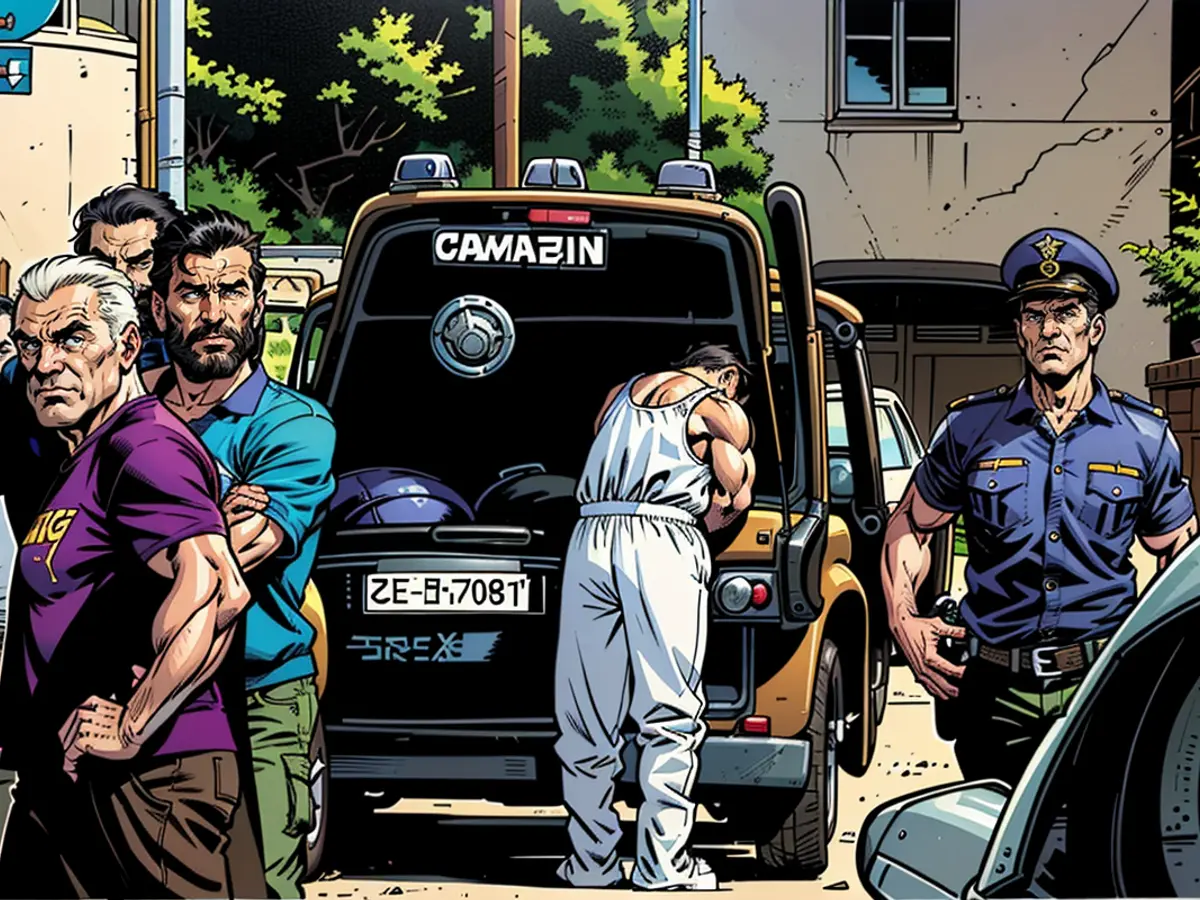Football Supporters with Mafia Connections often Operate in Unison
In the arena, it's all about the beautiful game, or so many supporters would like to believe. But a brutal homicide and a raid have begun to undermine this notion. For quite some time, the mafia has had a hand in the affairs, especially in Italy, where the Calabrian 'Ndrangheta plays a significant role. They strategically position themselves in businesses that promise profit.
On September 30, 19 supporters of Milan's football teams, Inter and Milan, were detained for corruption and mafia-related activities. These fan club members, known as ultras, were once synonymous with hooliganism, but now they're more focused on making money. The news of the raid generated widespread concern, especially considering the mafia's involvement.
These connections are not exactly groundbreaking. Remember Argentine footballer Diego Armando Maradona, a beloved figure in Naples. During his stint at FC Naples, he maintained close ties with local gangsters. They supplied him with cocaine, and he even posed for photographs with them in return.
"For the mafia, social acceptance is paramount for conducting business," explains Pierpaolo Romani in an interview with ntv.de. Romani is the head of Avviso Pubblico, an association of local administrations working together to combat mafia infiltration attempts. He also wrote the book "Calcio Criminale" (Criminal Football) ten years ago.
Players Living in Fear
The current investigations led by anti-mafia prosecutor Giovanni Melillo center around corruption, but also intimidation. Reports suggest that players have expressed fear and apprehension due to bad performances or controversial statements made against the ultras. It's also about the favors clubs extend to ultras, such as offering them a certain number of tickets at discounted prices, which they later sell at inflated prices.
While it's common knowledge that ultras have been involved in hooliganism, when did they become the mafia's lackeys? Romani's book provides valuable insights into answering this question.
Initially, the mafia showed interest in southern Italian football clubs, some of which they even ended up buying. Their primary goal was to secure political support by exchanging votes for favors.
Entrepreneurs like Silvio Berlusconi used to buy football clubs. "Today, they belong to financial funds, making the entire process more opaque," explains Romani. "Owners are hard to track."
Millions in Illicit Profits
And it's about substantial legal and illegal financial gains. Marco Bellinazzo, a journalist for the Italian economic newspaper "Il Sole 24 Ore," recently estimated the value of illegal activities in football, just for Milan and Inter, at between two and three million euros annually. Nationwide, it could surpass ten million euros.
Bellinazzo also highlighted drug trafficking and prostitution in stadiums. "Since security measures, controls, and monitoring have been outsourced to clubs, and they in turn hire stewards, there's an unspoken agreement that allows a certain level of disorder within the stadiums."
The ultras didn't always align with the mafia; it was a process. "Of course, not all ultras are criminals. Nevertheless, many of them have criminal records," said Romani. "Everything changed when football became an extremely lucrative business, and passion morphed into greed."
For the mafia, football is the perfect cover for money laundering. That's why they reached out to the ultras and requested their assistance, like taking charge of drug trafficking within the stadiums, in exchange for remuneration.
Lazio President under Protective Custody
"If you're handling thousands of euros daily," Romani pointed out, "you might question: Why work for others? Why not go independent?" That question could have been the catalyst for two murders in the scene.
The first was committed in August 2019 in Rome against the leader of FC Lazio's ultras, Fabrizio Piscitelli. The second was merely a month ago in Milan. Two Inter ultras were involved, and it resulted in tragedy, as Fabrizio Bellocco lost his life. In both cases, the victims had ties to the Camorra in one instance and the 'Ndrangheta in the other.
Given this context, and the fact that Claudio Lotito, the president of FC Lazio, is under personal protection for defying the desires of the ultras of the Lazio fan club, Simone Inzaghi's equanimity was almost eerie. The coach of FC Inter was summoned as an "informed person" in the investigation of the Milan fan clubs. Leading ultras had also confronted him, demanding more tickets for a match. Inzaghi assured the ultras he would handle the matter promptly and forward the request to the club's management. "I have never felt personally threatened," he repeated in the media.
However, Inzaghi was not the only one attempting to downplay the issue. The vice-president of FC Inter, Javier Zanetti, also denied any coercion or extortion attempts from the ultras.
But there's good news, according to Romani. The Anti-Mafia Commission has established a dedicated task force focused solely on football and mafia infiltration. And other countries should also take notice of the situation in their football, especially since the 'Ndrangheta has established a presence in Germany for some time.
The investigation led by anti-mafia prosecutor Giovanni Melillo has uncovered fears among football players due to intimidation, with players expressing apprehension over bad performances or controversial statements due to the mafia's influence. This influence in Italy's football scene is not a recent development; Pierpaolo Romani's book "Calcio Criminale" reveals how the mafia began infiltrating southern Italian football clubs, aiming for political support in exchange for favors.






